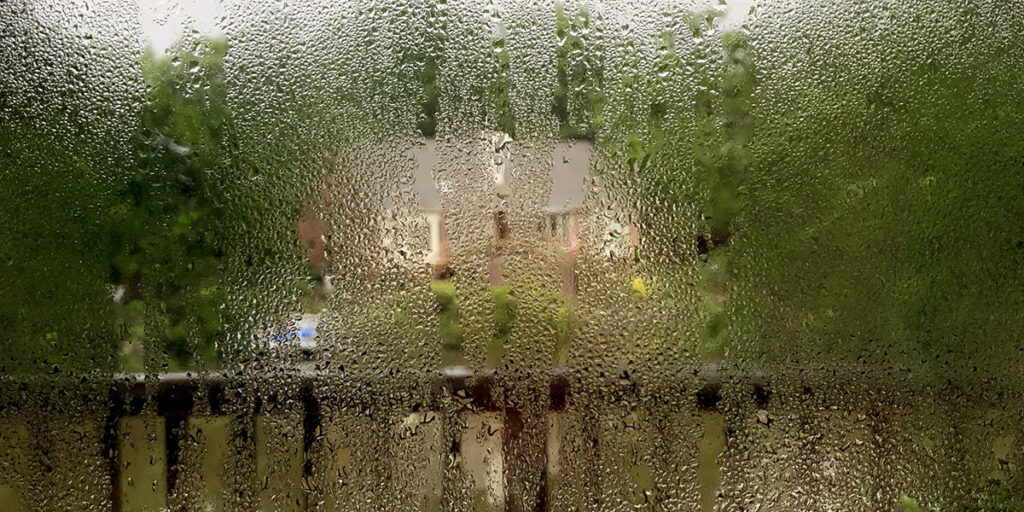Have you ever found yourself puzzled, standing in your apartment with the air conditioning cranked up, yet feeling as if you’ve just stepped into a sauna? The humidity seems relentless, clinging to your skin and fogging your mind. It’s a peculiar conundrum: why is your abode still humid even with the AC working hard? Let’s explore this phenomenon together, contemplating the possible culprits and solutions.
First and foremost, let’s dabble into the realm of air conditioning fundamentals. Air conditioners are designed not just to lower the temperature but also to reduce humidity. When functioning properly, they dehumidify the air as it circulates through the unit. However, if you’re experiencing excessive moisture, it could be that your system is overwhelmed or compromised. Is your AC unit simply too large for your space? Ironically, an oversized air conditioner can cool a room too quickly, causing it to cycle on and off more frequently than necessary. This rapid cycling can lead to insufficient dehumidification since the unit isn’t running long enough to effectively remove moisture. It’s akin to barely dipping your toes in a pool; you’ll barely feel the water, and certainly not enough to make a splash.
Another intriguing consideration is the location of your apartment. Is it a basement unit, or perhaps situated in a particularly humid climate? Basements often struggle with moisture intrusion from the surrounding earth, making them particularly challenging environments. The innate structural aspects of your building can play a significant role in trapping humidity. Poorly insulated walls, sealed windows, and doors that don’t close tightly enough may allow warm, humid air to infiltrate. Think of it as a game of hide and seek—your air conditioner is working diligently, but outside forces are sneaking in.
Alongside structural issues, your everyday activities can contribute to indoor humidity levels. Simple activities like cooking, showering, or even breathing can introduce moisture into your living space. When you whip up a delicious meal, steam rises, and without proper ventilation, that steam lingers, creating a sticky atmosphere. Similarly, hot showers can generate a significant amount of steam, which evaporates and raises humidity levels exponentially. In such cases, using an exhaust fan while running water or taking a shower may serve as an expedient solution. Exhaust fans effectively whisk away excess moisture, facilitating a more comfortable environment.
Let’s also delve into another often-overlooked component: the presence of houseplants. While they enhance your space aesthetically, some varieties can inadvertently raise humidity levels through a process known as transpiration. Plants release moisture vapor into the air, and in a humid environment, this can exacerbate the issue. If you find yourself hosting various greenery, consider relocating some outside or opting for more low-maintenance, less humidifying species.
Now that we have identified several potential sources of your humidity plight, it’s time to explore viable solutions. First, check the functionality of your AC unit. Ensure that the filters are clean and that the system is not blocked by furniture or debris. A thorough maintenance check can work wonders. If your air conditioning is old or inefficient, it might be worth contemplating an upgrade. Modern units often have improved dehumidification capacities and energy efficiency ratings.
Improving ventilation is another pivotal strategy. Ensuring that air can circulate freely throughout your apartment can mitigate stagnant humid air. Do you have windows that you can open occasionally? A brief period of cross-ventilation can create a much-needed air exchange, helping to dissipate moisture buildup. Additionally, fans can help circulate air, which further assists in combating humidity.
Incorporating dehumidifiers into your home can also prove beneficial. These appliances are designed specifically to extract moisture from the air, and placing one in particularly humid areas like the kitchen or bathroom can yield significant improvements to your overall comfort. Consider them the silent warriors in your battle against unwanted moisture.
Lastly, examine your lifestyle habits that could inadvertently be contributing to the problem. Are you drying laundry indoors? This practice can bedeck your apartment with additional moisture. If you can, consider using a dryer or hanging clothes outside. Additionally, always aim to fix leaks promptly, as undetected water seepage can stealthily raise humidity levels, turning your abode into an inviting habitat for mold and mildew.
In conclusion, a humid apartment can present a perplexing challenge, especially when it seems counterintuitive to experience such discomfort with the AC working tirelessly. By investigating potential issues with your air conditioning system, understanding the specific characteristics of your living space, and adjusting some of your daily habits, you can reclaim a comfortable, humidity-free environment. With the right strategies and a touch of diligence, you can navigate the complexity of humidity and enjoy a refreshing oasis in the comfort of your own home.
